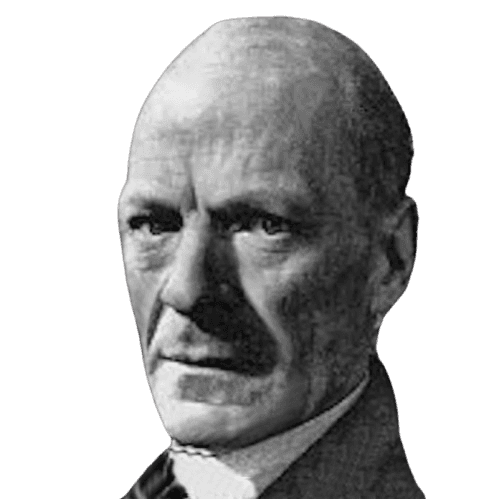Life and achievements
Early life
Ryle was born in 1900 in Brighton, Sussex, into a wealthy family. Ryle's father was a general practitioner with a passion for philosophy and astronomy and, thus, encouraged young Ryle to learn. Loving books and intellectual endeavors, Ryle grew up in a home offering several books to read. This upbringing was instrumental in molding him into the philosopher he would become.
The education received at Brighton College also helped him develop his academic abilities, especially in languages and philosophy.
Ryle attended school, and upon his graduation, he went to Queen's College, Oxford, in 1919 to study classics. Soon, he switched to philosophy, and this was based on the ongoing philosophical discussions. The young man passed out with first class in Philosophy, Politics, and Economics in 1924, which was the start of his long relationship with Oxford.
His early philosophical work was characterized by an analytical approach to philosophical issues, especially regarding the logical properties of language, which would be a leitmotif of most of his work.
Legacy
Thus, Gilbert Ryle's contribution and heritage are characterized by the refusal of Cartesian dualism and the emphasis on the role of the ordinary language in solving philosophic issues. His critique of the "Ghost in the Machine" metaphor in The Concept of Mind was instrumental in changing the discourse of the philosophy of Mind.
Ryle's idea to reject the concept of mental states as covert and otherworldly and instead define them as behaviors that can be witnessed in the physical world paved the way for what would come next in philosophy.
This showed that Ryle's impact was not only limited to the writings that he did. Being the editor of Mind during the mid-twentieth century, he contributed significantly to the development of philosophy.
His attributes of clarity, precision, and rejection of metaphysical discourse were made famous and are part of the modern analytic tradition.
Ryle's ideas on ordinary language remain topical in current philosophical debates, especially in the philosophy of Mind and language. His work on the dissolution of philosophical issues using language analysis still applies to this generation, and his criticisms of dualism are still core issues in cognitive science and philosophy today.
Milestone moments
Aug 19, 1900
Birth of Gilbert Ryle
Gilbert Ryle was born in Brighton, Sussex, to a family that supported academic pursuits.
Ryle was brought up by his father, a physician passionate about philosophy and astronomy.
Having been raised in this exciting environment, Ryle developed an interest in reading and thinking, enabling him to pursue philosophy.
His childhood was highly intellectual, with curiosity and the desire to learn, which would see him go to Oxford University.
Jul 30, 1924
Graduation from Oxford University
Gilbert Ryle was born in 1924, and in 1924, he completed his Philosophy, Politics, and Economics at Oxford University with first-class honors.
During his time at Oxford, he was entrenched in his love for philosophy, especially analytic philosophy.
Ryle continued to stay at Oxford after his education and got a job as a lecturer in philosophy.
His work at Oxford in his early years prepared him for his later philosophical contributions, especially regarding language and the Mind.
Feb 15, 1949
The Concept of Mind is published
Ryle's most famous work, The Concept of Mind, was published in 1949, a turning point in the philosophy of Mind.
In this book, Ryle dismissed Cartesian dualism and introduced the idea of 'category mistake.'
Ryle's idea that mental states are just behavior and disposition and not some inner entities revolutionized the way philosophy was done.
The publication of The Concept of Mind made Ryle one of the significant philosophers of the twentieth century.
May 8, 1971
Editor of Mind
Ryle was an editor of a top philosophical journal called Mind for about twenty-five years.
His editorship significantly impacted the course of analytic philosophy since he set the agenda for the debates of the time through his selection decisions.
By leading Mind, Ryle made the issues of language, behaviorism, and the Mind some of the critical topics of philosophical discourse in the middle of the twentieth century.
